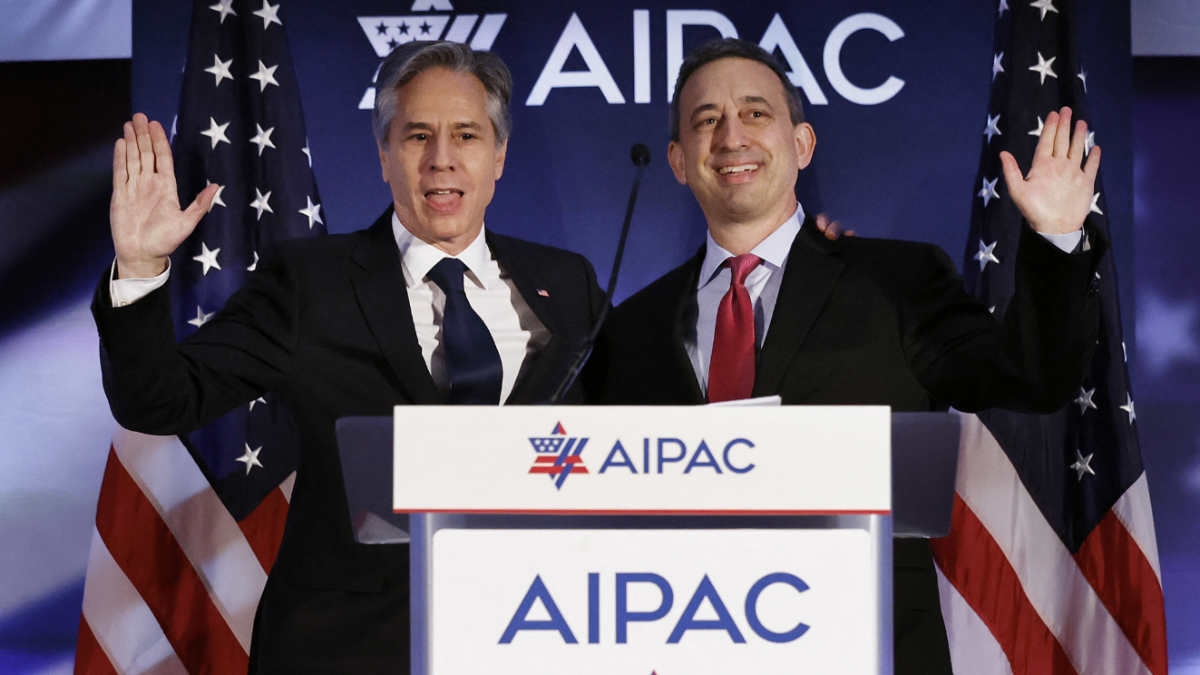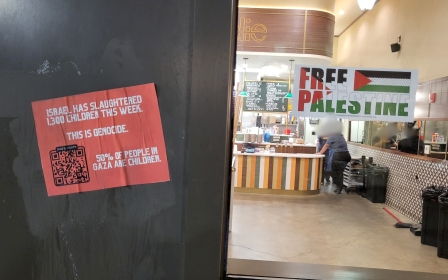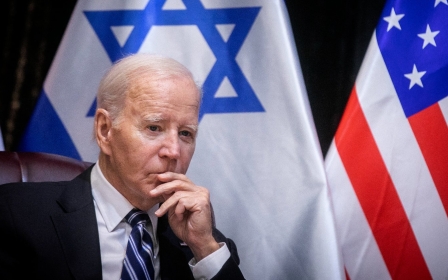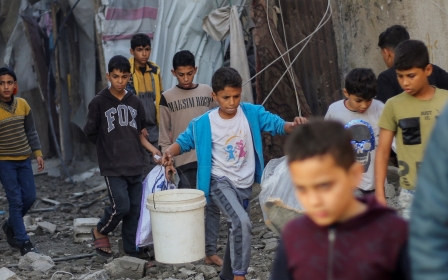Israel-Palestine war: Pro-Israel groups plan to lobby ‘biased’ media to shift narrative

The most powerful Israeli lobbying group is teaming up with other Jewish special interest organisations to try and shape the narrative in US media about the Israel-Palestine war.
The American Israel Public Affairs Committee (Aipac) launched the campaign, called the 10/7 Project, along with the American Jewish Committee, The Jewish Federations of North America, the Anti-Defamation League (ADL), and the Conference of Presidents of Major American Jewish organizations.
The organisations say they want to continue to ensure bipartisan support for Israel’s war campaign in Gaza, define media coverage of the war, and push a “stronger focus” on the casualties and hostages from Hamas’s 7 October surprise attack on southern Israel.
The Hamas-led attack on Israel killed 1,200 people, mainly civilians, and resulted in about 240 hostages being dragged back into the Gaza Strip. While some have been freed, over 100 are still being held by Hamas.
In response, Israel launched a ferocious bombardment of the besieged enclave and ground invasion that has killed over 16,000 Palestinians, more than two-thirds of whom are women and children, according to Palestinian health officials.
New MEE newsletter: Jerusalem Dispatch
Sign up to get the latest insights and analysis on Israel-Palestine, alongside Turkey Unpacked and other MEE newsletters
According to its website, the 10/7 project will seek to steer the narrative of the war. The organisation will provide journalists with “expert commentators” and access to individuals impacted by the 7 October attack.
The groups also say they will target media outlets and journalists for coverage of the war they consider “biased”.
“Through aggressive rapid response and a comprehensive media campaign, The 10/7 Project will work tirelessly to combat misinformation and inaccurate reporting about the Israel-Hamas conflict and continue shining a light on the victims and hostages of October 7,” Eric Fingerhut, president and CEO of the Jewish Federations of North America, said in a statement.
Jonathan Greenblatt, CEO of the ADL, said “there has been an onslaught of misinformation and conspiracy theories about the conflict and Israel circulating on social media and, in some cases, elevated by mainstream press outlets,” adding, that the project will help ensure the US public “verifiable, truthful, and balanced” coverage of the war.
Launch jeered on social media
The 10/7 launch raised red flags on social media, with commenters saying that the groups seemed intent on driving Israel’s narrative of the war, noting that the website didn't mention concern for any Palestinian civilian deaths in Gaza or the occupied West Bank.
Ninety percent "of the misinformation is coming from Israel and its supporters”, one person said on the social media platform, X.
“Part of 10/7 projects strategy for combating 'misinformation' will be to push traps like this into the public, get them to at least in the short term to accept that genocide = justice,” another person said on X.
Though there has been a reported surge in antisemitic incidents in the US, the announcement by the pro-Israel groups comes amid a crackdown on pro-Palestinian voices in the US.
The US House of Representatives this week passed a resolution with an overwhelming majority that equates anti-Zionism with antisemitism, sparking backlash from lawmakers, advocates for Palestinians and progressive Jewish groups who say the measure could restrict free speech rights in the country.
Palestinians, Arabs and Muslims have reported a deluge of hate crimes, disinformation and physical assaults since Hamas’s 7 October attack on Israel.
Middle East Eye reported on a recent case of three service workers at a restaurant in Pennsylvania fired from their jobs for expressing pro-Palestinian sentiment. In November, three Palestinian students wearing keffiyehs and speaking in Arabic were shot in Burlington Vermont while on their way to a dinner.
Middle East Eye delivers independent and unrivalled coverage and analysis of the Middle East, North Africa and beyond. To learn more about republishing this content and the associated fees, please fill out this form. More about MEE can be found here.




